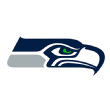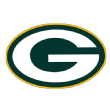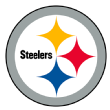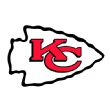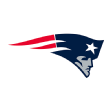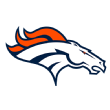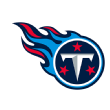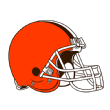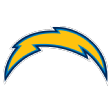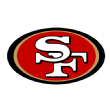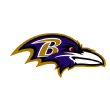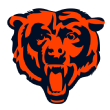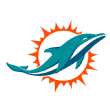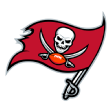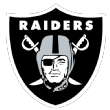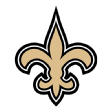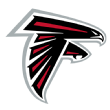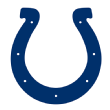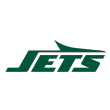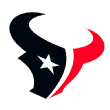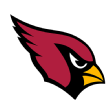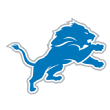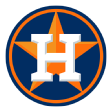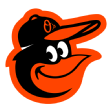5-on-5: Should the Clippers make big moves, or give it one more try?
The
Los Angeles Clippers face an offseason full of questions after injuries derailed their playoff run.
Where does Lob City go from here? Is it time to break up the Clippers' core?
Our NBA Insiders go 5-on-5 on the future of the Clippers.
1. What do you foresee and advise for the Clippers this offseason?
Kevin Arnovitz, ESPN.com: The biggest upgrade needed is asset management and acquisition -- there's not even a little wiggle room on the Clippers' spreadsheet. They own
Jeff Green's Bird rights and I suspect they'll pay him and throw the mid-level exception at a third-tier free agent or use it to re-sign their bench free agents like Wes Johnson. The realistic route would be to fill out roster spots No. 5-10 more selectively than they have in recent years.
Amin Elhassan, ESPN Insider: My advice is to get a real GM. But what I foresee: They'll look for some also-ran players who once played for team president Doc Rivers or played well against him (or played in his driveway). That's who they'll target.
Tom Haberstroh, ESPN Insider: I'm guessing Doc Rivers will continue to sign big-name, over-the-hill veterans to fill out the roster, but I'd veer in the other direction and start investing in some youth like the
San Antonio Spurs and
Miami Heat have done. It's staggering that the only guy who's younger than 25 in the rotation is the coach's son.
Andrew Han, ESPN.com: Consistency, consistency, consistency. The Clippers have done well to keep their core together, but the bench has been turned over each of the past three seasons. L.A. should seek to retain the majority of its roster, look for one or two additions and spend the bulk of its offseason buttressing the front office and training/development staff. They also should set a plan to create a Clippers-controlled D-League franchise.
Kevin Pelton, ESPN Insider: I'd probably advise putting all the Clippers' energy toward finding a legitimate 3-and-D wing to fill out their starting five before searching for the same kind of value players they found to fill their bench this season. Most likely, the Clippers will play over the cap and re-sign guys like Jeff Green and Austin Rivers before deciding whether to use their mid-level exception to add a free agent or re-sign players like Cole Aldrich and Wes Johnson.
2. For several years, there has been talk of breaking up the Clippers. What is your take on this idea?
Arnovitz: If you break it up, what exactly are you getting in return? As currently constituted, let's say the Clippers have a 10-15 percent chance of getting where they want to go. Not great, but a puncher's chance. If detonating yields a series of deals that moves that number to 20 percent, go for it. But if there's little value in return, they're probably better off playing the 7-to-1 or 8-to-1 odds.
Elhassan: If you look at the four-man combination of Chris Paul, J.J. Redikk, Blake Griffin and DeAndre Jordan, they've consistently ranked among the top lineups in the league in plus-minus and net rating. The idea that the Clippers need massive changes is overblown. What they need is competent cap management, good free-agent signings, better minor league evaluation and better player development. In short, all the things you need to correctly fill out your supporting cast.
Haberstroh: Rather than use the major injuries as a reason to detonate the roster, I'd keep it together for the same reason: Things happen and you have to be ready to capitalize when luck falls your way. Injuries can happen to anyone, but not everyone has the talent to win a championship. Keep the big three together.
Han: There's essentially no scenario where the Clippers can net fair value for any of
Chris Paul,
Blake Griffin or
DeAndre Jordan at this point. And frankly, the fact that their postseason has been mired in playoff woe clearly indicates there's still potential untapped in this squad. You don't trade truffles for a carton of chips just because you haven't perfected the recipe.
Pelton: I think the Clippers' injuries (and Steph Curry's) actually make the strongest case against breaking up their core. As long as you're in the mix, things can happen in the playoffs. And I wouldn't be in a hurry to throw that opportunity away unless I could get a better player, a true younger talent or a similar talent on a better (read: longer) contract.
3. If the Clippers move one of the big three, who should it be?
Arnovitz: If the Clips ultimately decide blowing up the roster is the right thing to do, they might want to look at dealing Paul. By retaining their two 27-year olds, they could stay young and bide their time while reloading. And Paul is precisely the kind of veteran star a "one-player-away" team would offer value for to go all-in next season. All that said, it's nearly impossible to get full value for a top-10 player.
Elhassan: Depends on what brings back the biggest and best haul. For example, if OKC native Blake Griffin can be used in a Durant sign-and-trade, obviously that's the way you go. But absent that sort of manna from heaven, it probably makes a lot more sense to trade Paul -- the eldest of the big three -- and try to keep the window of opportunity open.
Haberstroh: I just said keep the core together! All right, fine, I'll bite. If I trade someone, it's DeAndre Jordan. He'd return the most value considering he wouldn't be a one-year rental like Griffin and Paul. Also, it'd force Griffin to commit to playing the five, where the Clippers might need him anyway.
Han: If push comes to shove, CP3 should be the one moved. Paul will be 31 at the start of next season and, even if he'd return less than Griffin or Jordan, trading one of them probably wouldn't keep L.A. in a position to win now. And Paul has no time to fiddle with a roster not actively in contention.
Pelton: If the Clippers are trying to maximize their chances of winning next year, Griffin, since the team has shown the ability to win without him and could get the kind of secondary creator necessary to play without him against elite competition in return. If they're instead trying to maximize their chances of winning in the next five years, Paul is the choice given his high value and age.
4. Austin Rivers has a player option. If he becomes a free agent, what will and should the Clippers do?
Arnovitz: They should evaluate the market for available point guards and see if they can do better within the constraints of their cramped cap situation (e.g. Mario Chalmers). If they can't, the Clippers can probably get Rivers at a better than market value deal.
Elhassan: The Clippers should do better -- much better. There might be a good 20 minimum-salary players I'd rather have, and half of them were in the D-League. But knowing
Doc's Decision Tree, Austin will be back and at a higher salary slot. Welcome to the Clippers!
Haberstroh: Awkwaaaard. If the Clippers overpay (anything over an annual $5 million in my opinion), then every player in that locker room will be looking at the head coach sideways. Rivers has never posted a 12 PER, and ranks 67th in real plus-minus ... among point guards. I'd let him walk if he wants a big bump from his $3.3 million option.
Han: Seeing as the Clippers hold Rivers' Bird rights, they should and will retain the young guard. Under the assumption L.A. stays over the cap, a three-year, $15 million contract with the second and third year non-guaranteed would probably be best. That would be a similar cap percentage to his current salary and it gives the team the contract flexibility to use in transactions moving forward.
Pelton: They should be excited he opted out of the deal. Despite the good moments Rivers had this season, he still rated below replacement level and is unlikely to improve much more after four NBA seasons.
5. If the Clippers were a stock and you were looking ahead five years, would you buy, sell or hold?
Arnovitz: Hold. Jordan is still improving, as was Griffin at full health -- and both are 27. Paul and J.J. Redikk are both aging very well. And the team finished top 10 in both offensive and defensive efficiency. The failure has occurred at the margins of the roster, which is correctable.
Elhassan: Sell. Absent a different voice in management who can not only say "no" to Doc, but can also influence him to develop younger players not related to him and give them a chance, the Clippers will continue to underachieve and their talent will start to dwindle as Paul and Redikk age.
Haberstroh: Sell. Griffin's quad injury is a concern for a player so dependent on explosiveness, and the roster has no youth around him, nor is there any indication that Doc Rivers can identify talent in the draft. I'd give it one more go and then trade Paul to
LeBron James' team. Wherever that may be.
Han: Hold. The Clippers are one of the few teams perennially in the conversation for contention. More important, we've yet to see tech-billionaire owner Steve Ballmer's influence on the basketball side of the franchise. And deep pockets coupled with analysis typically means positive things.
Pelton: Hold. The glass half-empty view is that the Clippers have an aging core group and are already out a couple of future first-round picks due to short-sighted trades. The glass half-full version is that the Clippers still have two stars in their 20s and should remain a premier destination for free agents as long as they're competitive thanks to the L.A. market (and possibly the Lakers' mismanagement).


